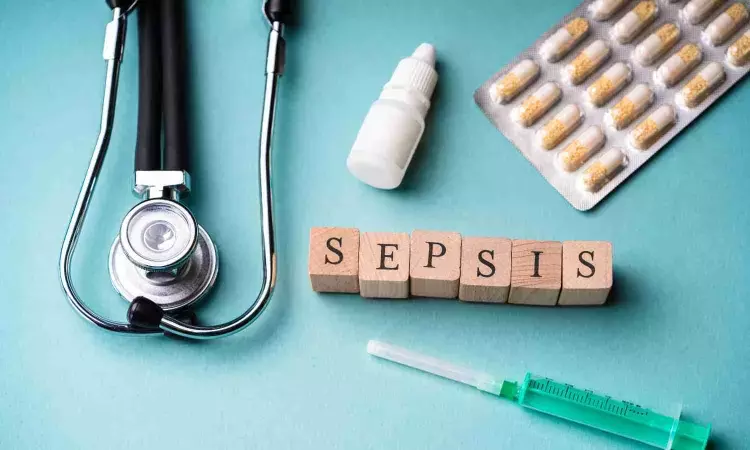- Home
- Medical news & Guidelines
- Anesthesiology
- Cardiology and CTVS
- Critical Care
- Dentistry
- Dermatology
- Diabetes and Endocrinology
- ENT
- Gastroenterology
- Medicine
- Nephrology
- Neurology
- Obstretics-Gynaecology
- Oncology
- Ophthalmology
- Orthopaedics
- Pediatrics-Neonatology
- Psychiatry
- Pulmonology
- Radiology
- Surgery
- Urology
- Laboratory Medicine
- Diet
- Nursing
- Paramedical
- Physiotherapy
- Health news
- Fact Check
- Bone Health Fact Check
- Brain Health Fact Check
- Cancer Related Fact Check
- Child Care Fact Check
- Dental and oral health fact check
- Diabetes and metabolic health fact check
- Diet and Nutrition Fact Check
- Eye and ENT Care Fact Check
- Fitness fact check
- Gut health fact check
- Heart health fact check
- Kidney health fact check
- Medical education fact check
- Men's health fact check
- Respiratory fact check
- Skin and hair care fact check
- Vaccine and Immunization fact check
- Women's health fact check
- AYUSH
- State News
- Andaman and Nicobar Islands
- Andhra Pradesh
- Arunachal Pradesh
- Assam
- Bihar
- Chandigarh
- Chattisgarh
- Dadra and Nagar Haveli
- Daman and Diu
- Delhi
- Goa
- Gujarat
- Haryana
- Himachal Pradesh
- Jammu & Kashmir
- Jharkhand
- Karnataka
- Kerala
- Ladakh
- Lakshadweep
- Madhya Pradesh
- Maharashtra
- Manipur
- Meghalaya
- Mizoram
- Nagaland
- Odisha
- Puducherry
- Punjab
- Rajasthan
- Sikkim
- Tamil Nadu
- Telangana
- Tripura
- Uttar Pradesh
- Uttrakhand
- West Bengal
- Medical Education
- Industry
Sepsis can kill even previously healthy people if recognized too late, finds study

A recent study University of Michigan led study finds that ten percent of patients hospitalized with sepsis were previously healthy-and many of those who ultimately died did so because it was too late to intervene.
The work, led by Rachel Hechtman, M.D., Hallie Prescott, M.D., and their team, focused on healthy patients as a way to tease out the effects of advanced age, comorbidities and other common risk factors on sepsis outcomes.
Using data from 66 hospitals in Michigan from more than 25,000 patients with sepsis, the team identified a subset as previously healthy, lacking major health conditions such as cancer, chronic pulmonary disease and heart failure.
Previously healthy patients tended to have less organ failure upon arrival at the hospital and more COVID-19 related sepsis (the study included data from 11/2020 – 10/2024).
Treatment for these patients differed as well, with less adherence to sepsis management practices, such as blood culture collection and timely delivery of antibiotics.
Those who unfortunately died tended to be older, and had more acute respiratory dysfunction, altered mental status and shock upon admission to the hospital.
During their course of treatment, these patients also received vasopressors and invasive mechanical ventilation more often than survivors, notes the authors.
Most of their deaths were deemed to be unpreventable due to how sick they were when they arrived at the hospital.
Overall, almost 10% of previously healthy patients with sepsis died within 90 days of hospitalization.
The study, notes the team, identifies system level opportunities to reduce the rate of death in patients with sepsis.
“Efforts to increase sepsis awareness among the public and first responders would benefit everyone. Some of these tragic deaths among previously healthy people might have been avoided if their illness had been prevented through vaccination or recognized and treated early before they got sick enough to come to the hospital,” said Hechtman.
Reference:
Rachel K. Hechtman, Epidemiologic Characteristics and Management of Sepsis Among Previously Healthy Patients, CHEST Critical Care, DOI:10.1016/j.chstcc.2025.100148.
Dr Kamal Kant Kohli-MBBS, DTCD- a chest specialist with more than 30 years of practice and a flair for writing clinical articles, Dr Kamal Kant Kohli joined Medical Dialogues as a Chief Editor of Medical News. Besides writing articles, as an editor, he proofreads and verifies all the medical content published on Medical Dialogues including those coming from journals, studies,medical conferences,guidelines etc. Email: drkohli@medicaldialogues.in. Contact no. 011-43720751


